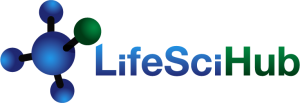Head, Nonclinical Regulatory Writing Group, global top 20 pharmaceutical company, Sept 2022:
“We have a weekly resource shortfall of 20 hours per week of senior level nonclinical expertise [must have: PhD toxicologist, 20+ years direct drug sponsor experience], 10 hours a week of eCTD Module 4 document formatting, and 10 hours a week nonclinical systems and processes informatics. Technically we can squeeze this into a full time role however it would be very hard to find a single person who can do all of this. Also, it doesn’t make sense to have such a senior person spending time on an administrative and technical tasks. What we really need is to use 3 different experts for these tasks. Oh, and the work actually varies quite a bit from week to week. One week could be 5 hours, the next 25, and some weeks no work at all.”
Although this particular need was for a senior leader in the Translational Sciences department, this is a common resourcing challenge throughout the entirety of the drug development spectrum. It reveals the “new” problem of project needs pressing up against the boundaries of the traditional job description.
Future of Work thought leadership, and LifeSciHub, have a solution for this: “Taskifying”-defined as constructing work in terms of specific, not necessarily short term, tasks. “Roles” on the other hand, which is how most companies operate, imply a collection of tasks in a job description. The job description itself may or may not be in alignment with available talent as is the case with the example above.
“Taskifying” is a different way of thinking about work, agility and workforce planning. As described in Work Without Jobs, MIT Press, “Organizations and leaders typically think of work as a ‘job,’ and workers as ‘job holders.’ Jobs are structured by titles, hierarchies, and qualifications. This cumbersome and ungainly legacy is a formidable barrier to your ability to meet challenges such as accelerating automation, increasing organizational agility, enhancing diversity and inclusion, and tapping new work arrangements. The future of work demands that organizations address the following reality: their work and workforces need to be perpetually reinvented because they are perpetually being rendered obsolete. Deconstructing jobs into tasks/projects, skills/capabilities and qualifications, and distributing such work to the best option—automation, gig workers and/or internal talent marketplaces— creates agile, humanistic and cost-effective workplaces that can perpetually reinvent.”
But how? Although taskifying has been widely adopted in some verticals- tech, for example- for other industries it may not be so easy.
Luckily, drug development itself is naturally organized in to tasks, clinical stage especially. In fact, leaders on the front lines of drug development are already doing it- above is a perfect example. What these leaders are having difficulty with are the heavy corporate systems designed for traditional FTE, 40-hr a week pathways. Multiple corporate “immune system” barriers are often in place around such systems to prevent divergence from traditional staffing pathways.
In the example above, LifeSciHub was able to connect the drug sponsor to independently incorporated small business experts almost immediately. All of the hardest-to-source R&D skills exist in abundance in the independent small business workforce. In fact, it is far easier to find expertise for 10-15 hours a week than 40- all independent small business experts have multiple clients.
LifeSciHub also provides consolidated contracting, invoicing, time tracking and reporting for all independent experts, so that the drug sponsor doesn’t have manage tens or hundreds of individual contracts and invoicing cycles.
Other examples of Resilience-Building Drug Development Taskifying:
- .25% of a clinical trial supply expert, responsible for trail supply for a multi-year Phase 2 program
- 500 hours over the course of 1 year of Trial Master File inspection readiness expertise.
- .75% FTE Data Management Lead for a multi-year Phase 2 program
- 5 hours a month- Organoids expertise, coaching and KOL development for a discovery innovation team
- 10 hours a week submission publishing, 18 months
- etc.
For more examples of R&D work that can be performed as flexible “tasks”, see LifeSciHub Projects.
To find and engage and expert, email info@lifescihub.com.
